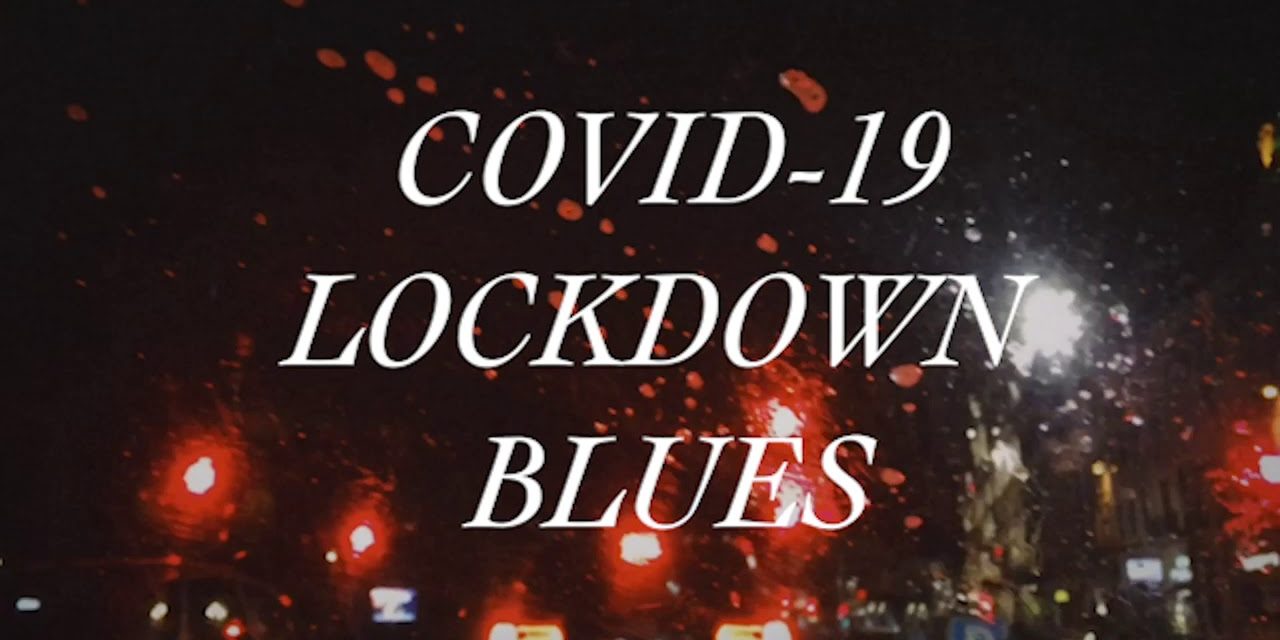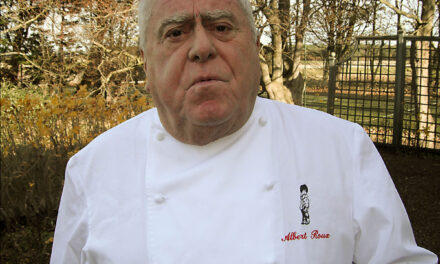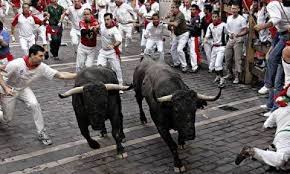LIFE AFTER LOCKDOWN
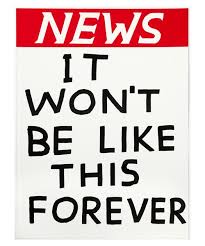 I am normally a glass-half-full-kinda-of-a-guy, but I have to be honest, I am trying to find something positive and uplifting to say about this situation. Firstly, let’s look at the medical situation. I don’t want to use the word facts as I am not sure that anyone has them. Covid 19 is not an airborne virus but it is contagious by contact and respiratory droplets as well as contaminated surfaces. So the first part of ‘lockdown’ and safe distancing is sort of sensible. But we are not building any natural immunity. It is said testing, testing, testing is one of the answers, but you can be tested today and be negative, but next week you could be a carrier. We all understand that having the lockdown helped the health services cope. If it had been a ‘free-for-all’ hospitals would have been inundated. But, until there is a vaccine the virus will not go away. After lockdown, only one person with the virus is sufficient to affect 15 people and then infinitum…….So there will be a spike and we will start all over again. We still don’t know whether those that contracted it will have immunity from it or indeed can still carry it. We know that in the same period last year, 15.000 people died from flu in Spain. This means of the 26.000 + that have died from Covid 19 — or probably more at the final count— how many would have died from normal flu? We also know that in older people, especially in nursing homes, who pass away with ‘normal’ conditions, the cause of death is nearly always pneumonia as that is the last resort of the bodies fight against whatever. So virtually anyone in that situation will be classified as ‘with Covid 19 symptoms’ on their death certificates. That aside, there are still far too many deaths to ‘healthy’ people.
I am normally a glass-half-full-kinda-of-a-guy, but I have to be honest, I am trying to find something positive and uplifting to say about this situation. Firstly, let’s look at the medical situation. I don’t want to use the word facts as I am not sure that anyone has them. Covid 19 is not an airborne virus but it is contagious by contact and respiratory droplets as well as contaminated surfaces. So the first part of ‘lockdown’ and safe distancing is sort of sensible. But we are not building any natural immunity. It is said testing, testing, testing is one of the answers, but you can be tested today and be negative, but next week you could be a carrier. We all understand that having the lockdown helped the health services cope. If it had been a ‘free-for-all’ hospitals would have been inundated. But, until there is a vaccine the virus will not go away. After lockdown, only one person with the virus is sufficient to affect 15 people and then infinitum…….So there will be a spike and we will start all over again. We still don’t know whether those that contracted it will have immunity from it or indeed can still carry it. We know that in the same period last year, 15.000 people died from flu in Spain. This means of the 26.000 + that have died from Covid 19 — or probably more at the final count— how many would have died from normal flu? We also know that in older people, especially in nursing homes, who pass away with ‘normal’ conditions, the cause of death is nearly always pneumonia as that is the last resort of the bodies fight against whatever. So virtually anyone in that situation will be classified as ‘with Covid 19 symptoms’ on their death certificates. That aside, there are still far too many deaths to ‘healthy’ people.
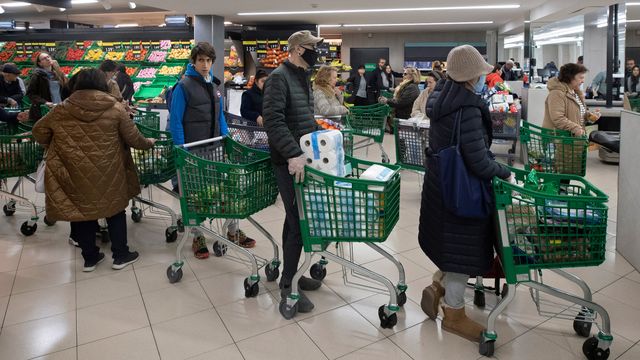
SCENES IN MERCADONA
So when we start ‘the new normal’ social distancing will still be the norm!! One meter, two meters — whatever. I am reminded in the days before the smoking ban, some of the restaurant industry used to have a no smoking area in their restaurants. One wag commented to me that it was like having a ‘no peeing end’ in a swimming pool. That’s a bit how I feel about the social distancing rule. Keeping a meter apart going into a supermarket is OK until you get to the veg counter!! (Another casualty of this virus is we have spent years trying to rid the world of plastic, now we have 10.000.000 (?) sets of plastic gloves weekly (?) finding their way into the system!) Yet, supermarkets are deemed essential (which of course they are) but now garden centres and DIY shops are being given grace to open. My local Estanco has remained open for the sale of cigarettes (well if one doesn’t get you the other will!) and magazines, but I can’t buy a lottery ticket — go figure.
A lot of ‘heroes’ have emerged since the beginning of this year. This is a much bandied word and in the case of frontline medical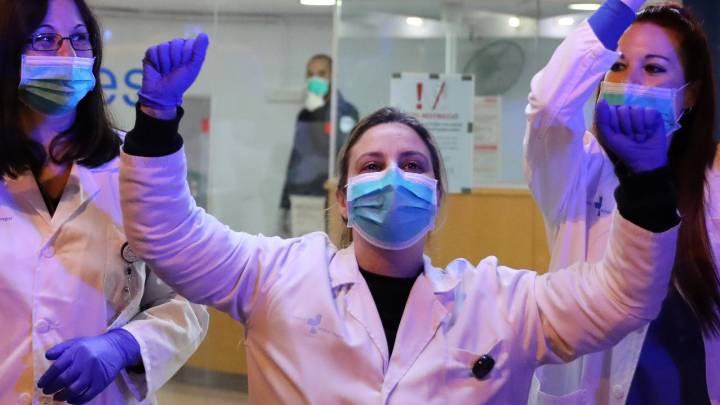 staff it is apt. But bus drivers, train drivers, supermarket employees and the civil service while essential are not in the same ‘hero’ status but are people who are lucky to be able to work and earn a living while others cannot!
staff it is apt. But bus drivers, train drivers, supermarket employees and the civil service while essential are not in the same ‘hero’ status but are people who are lucky to be able to work and earn a living while others cannot!
However, the amount of deaths caused by suicides, bankruptcies and domestic violence because of the impending financial disaster, may well exceed the deaths from the virus!
So, I was intrigued to work out what the short term effect would be on a small restaurant business here on the Costa del Sol and the long term prospects, which will be much like that of any other country that is dependent on tourism or with a pavement café lifestyle. Take a medium size restaurant of say 50 covers and a monthly turnover of 50/60.000€ a month: This is firstly the loss to the government assuming that they will still have to pay rent:
IRPF Staff: 4.500
IVA Net: 1.500
Rent retention: 630
Then there is the cost to the government for Furlough or unemployment benefit (paro)
6.000
Income tax for the operator
1.000
Loss of income for gas electricity and water:
1.500
So the smallest of business closures is going to cost the country in the region of: 13.630 per month.
Lack of income to suppliers ie. Food, wine and bar suppliers (not including their subsequent tax obligations):
14.600
Loss to local small businesses (not including their subsequent IVA and tax obligations):
1.000 per month
So one unit will be responsible for the loss to the country of approx: 13.630 a month
Then the loss of income for support businesses would be around 17.000€
So, one little business in one tiny sector would be multiplied by hundreds of restaurants and bars in the Marbella area alone showing a loss to the country of some 3 million€ a MONTH and the loss to support businesses of some 3.5 million€ a MONTH: and with all this, the prospect of bankruptcies all around the country placing millions into unemployment and worse.
The Hospitality Industry worldwide is in a state as never before. In Spain alone, the industry (which incorporates tourism) contributes upwards of
178 billion€ in other words 14.6% of the country’s GDP and employs some 3.2 million people. In the UK it is responsible for £106 billion and 10% of GDP and employs 3.8 million people. The likelihood of redundancies in the sector will probably run into 50% of the workforce.
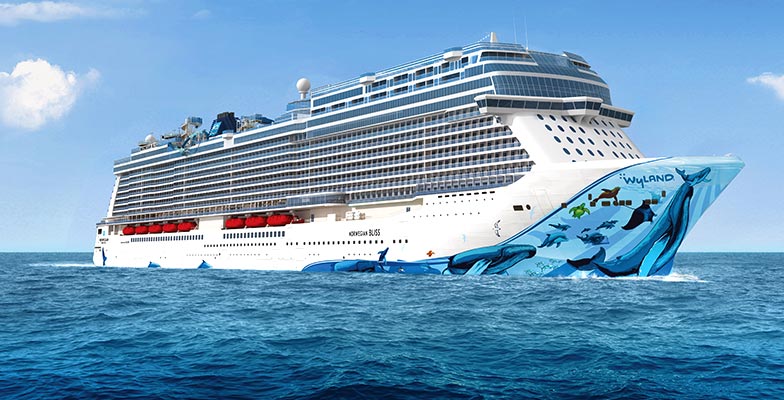 Airlines are collapsing; the cruise industry is cancelling all summer cruises and is facing financial ruin with the third biggest cruise company in the world, Norwegian Cruises, forecasting bankruptcy. The Spanish government has warned the tourist industry to brace itself for a return to the tourism of the ‘50s and ‘60s relying on national visitors as opposed to foreign tourists.
Airlines are collapsing; the cruise industry is cancelling all summer cruises and is facing financial ruin with the third biggest cruise company in the world, Norwegian Cruises, forecasting bankruptcy. The Spanish government has warned the tourist industry to brace itself for a return to the tourism of the ‘50s and ‘60s relying on national visitors as opposed to foreign tourists.
So, is there a magic ‘wand waving’ that is going to make things better? In other words will lockdown being phased out, turn the tide? What can we expect when restaurants are allowed to open? With the concept of social distancing making operators split their tables, to allow a two meter space and with a reduction of 50% of their capacity, how is that going to affect the little guy?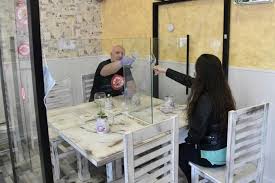
Let’s take our restaurant example as above. In its simplistic form a 50% reduction in covers would in turn mean a 50% decrease in turnover. Applying the 50% rule then unless he lets go 50% of his staff (which would be unrealistic) he is destined to lose 3/4000€ a month. Hardly sustainable!
Are landlord’s going to reduce rents? Will IBI go down? Are banks going to reduce interest rates? Will banks make loans easier to get and at sensible rates? I am afraid the answer to all those questions is probably NO. There is a rumour that the government is thinking of reducing IVA (VAT) on restaurant bills to 4%. This would of course help, but with millions on the dole they will probably increase IRPF and of course income tax; they have to get it from somewhere! This is providing that after months of lockdown there will be premises that will be able to open again — if they haven’t gone bust! How many people will rush to get on a plane, or book a cruise let alone go into a restaurant where 50% of the ambience will have disappeared? I can’t see queues forming can you?

CAPTAIN ‘COLONEL’ TOM
One thing that ‘lockdown’ has shown is the resilience of people and the coming together of communities: Something that will be needed in the coming years. It has also made us more creative especially in the world of entertainment. Entertainment programmes are being made without studio audiences, football games will be played without spectators, concerts without fans and filming of TV soaps and serials stopped. With British soaps like Emerdale, Eastenders and Coronation Street not filming they have cut back their broadcasting by half: but what happens when they run out of stock? You can’t make movies out of social distancing, although there was a seriously good trial of four 15 minute programmes on British TV recently which was filmed and made in the actors’ houses with self filming, make up, lighting etc. very creative but I noticed it still took 20+ people to put it all together from the safety of their own homes/offices.
One positive thing that may come out of this could be the ‘working from home’ movement. Imagine for those that can work from home the money and energy that will be saved by not having to commute to a city office daily, saving CO2 emissions, fuel and the inevitable rush hour! Better family lives, flexible hours all meetings conducted by Facetime/Zoom/Skype. That could work: No office politics, no office flirtations (OK it has its down side!) People, especially in the UK, could move away from London and other major expensive cities as they would not have the need to be so close to their place of work.
But how will all this affect footballers for instance when there are no fans to pay for tickets? Will footballers be made to take reductions in their not inconsiderable salaries? Or could all matches or concerts be ‘pay for view’ with the roars and cheers of the crowd be ‘canned’ as in the laughter on many comedy programmes. Will entertainers do that instead of touring? Paying 5€ for a ‘ticket’ to see Take That on your home screen as opposed to paying 150€ for a ticket, suddenly becomes interesting for both parties: one performance, 3 million (?) world wide audience, it could make sense, both financial and technically. In its place will we see the demise of cinemas and theatres?
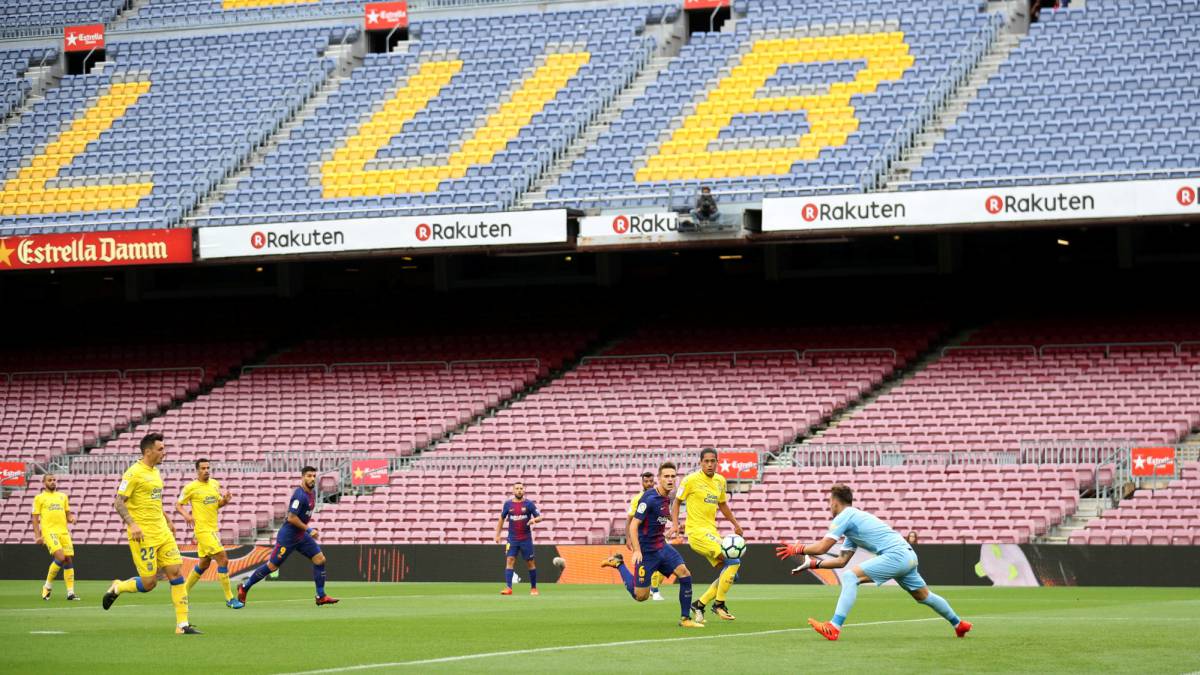
And of course, newspaper print has taken a hit with some major newspapers saying they have lost 50-80% of their revenue. But if they were to go ‘on line’ (many already have digital versions) their overheads would be considerably less and their coverage could well increase. Coffee table magazines ‘on line’ are becoming more popular and could well be the way forward. We all know how much it costs to print so who knows…….?
So back to my area of things, restaurants and hotels: With thousands of hotels and few tourists how many will survive? Restaurant clients have discovered cooking at home. Their first ‘outing’ will probably be to invite friends around for dinner or lunchtime barbecues! The realisation that it costs considerably less to dine in than out could well make this a game changer! The rise of the in house chef is nigh: ‘Get restaurant food’ in your own home. Cheaper than an outing and no concern of drink driving and even your guests can pay for a taxi knowing that it hasn’t cost them a fortune for dinner. The main thing is that restaurants will have to rethink their whole raison d’etre. Apart from a few very high end, Michelin starred and fine dining establishments or tapas and snack type operations, most will have to reconsider their product. They will need to offer exceptionally good food at exceptionally competitive prices and the accent will be on informal dining, if they are to survive.
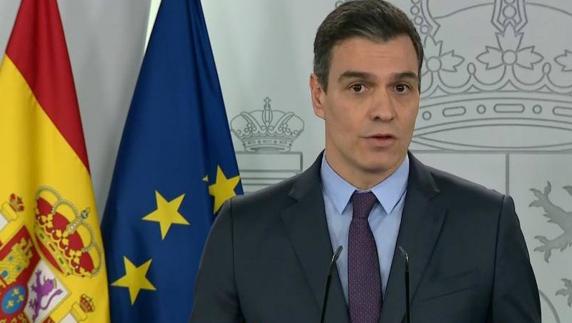

Both the Spanish and British governments have done the best they can within their ability, against an unknown and invisible enemy which up until now shows no sign of surrendering. But their futures will not be based on how they managed the crisis, but how they get everyone out of it.
Many will remember that the finest war leader of ‘our’ time was Sir Winston Churchill who ensured that the British and subsequently Europe were not beaten by the Nazis and was rightly praised for it. Two months after the end of World War Two he was unceremoniously dumped out of office and lost to the Labour Party. Why? Because he concentrated on winning the war but forgot to win the peace, as he had no real plan to bring us all back from the brink.
Sound familiar?

